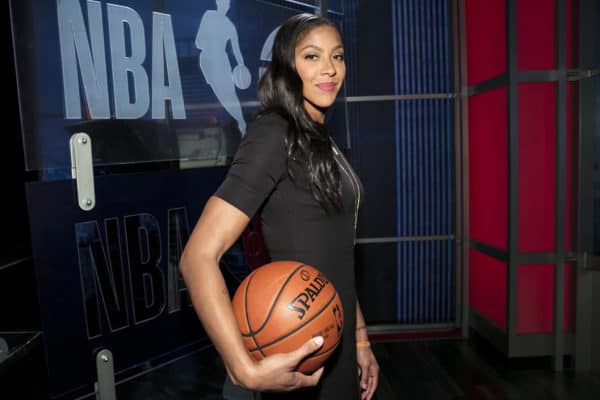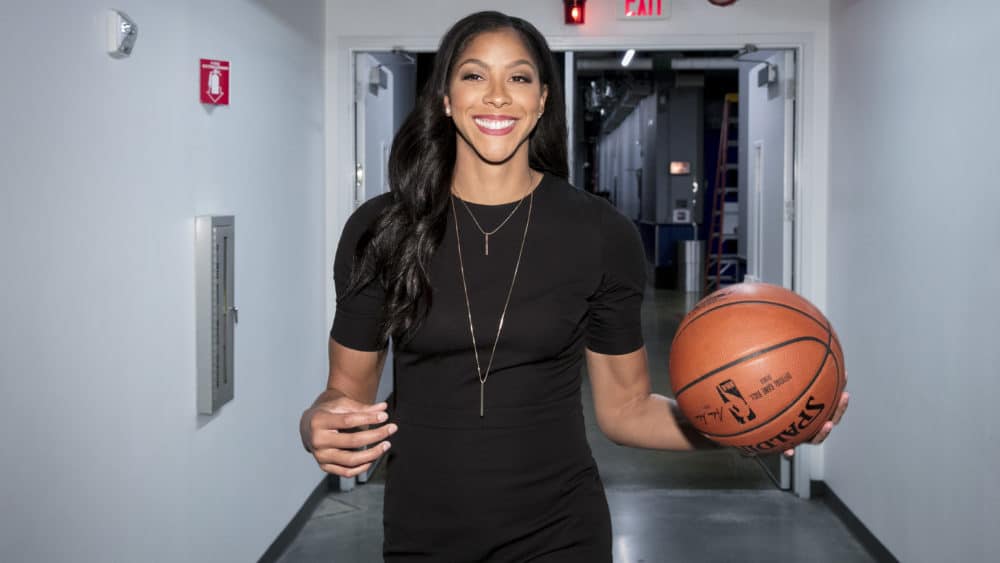[ad_1]
WNBA star Candace Parker has been vocal about the gender disparities seen not only in professional basketball but also society. The Los Angeles Spark player uses her voice and platform to help those in need. Like most advocates, she is influenced by iconic civil rights leader Martin Luther King Jr.
On MLK Day, Parker will be one of the NBA and WNBA greats, including Chris Bosh, Wayne Embry and Bill Walton, to receive the 14th Annual National Civil Rights Museum Sports Legacy Award. In celebration of King’s legacy, the award is given to people in the sports industry who make significant contributions to civil and human rights and for laying the foundation for future leaders.
The two-time WNBA MVP spoke with EBONY about the impact of visiting the National Civil Rights Museum, her favorite MLK quote and how King’s nonviolent activism helps her combat the WNBA’s gender pay gap.
How does it feel to be an honoree of the sports legacy award?
I’m very excited to be attending the events this weekend honoring Dr. Martin Luther King Jr. To be a part of the events [commemorating the 51st anniversary of Dr. King’s assassination]. I think to be a part of that and be amongst the company that I’m with is extremely humbling. Everybody’s learned about what Martin Luther King has done for us and continues to do. To be a part of that celebration of him and to be able to experience those things in Memphis—I’ve never been to the museum [or] the Lorraine Motel—it’ll be a unique experience. I’ve heard that it’s extremely powerful and to be able to experience with daughter and my family, I’m really excited to learn more and to be around great people.
What are the contributions you try to make to ensure that the people around you have equal rights and opportunities?
I think it obviously starts in the way that we speak. Empathy is a huge ingredient to Martin Luther King’s teachings and what he tried to get across. I have a 9-year-old daughter and I try to instill that in her because for [the civil rights leader], a lot of [his work] was in future generations and doing stuff for children. That’s the best way [to educate] is just spending time with your kids and making them understand the people that came before them, that they have a voice and that one person can make a huge difference. So that’s just kinda how I try to do things, I have a great platform and I just try to use it for positivity and spreading good things because that’s definitely what the world continues to need.
Do you have a favorite Martin quote or moment?
There are several. Everybody knows the “I Have a Dream” speech but I love when I hear something new. I was speaking with my mom on [Jan. 15], King’s actual birthday, and she told me this quote: “It’s all right to tell a man to lift himself by his own bootstraps, [but it is cruel just to say to a bootless man that he ought to lift himself by his own bootstraps.]”
That quote is powerful just for the fact that there are so many people out there that don’t have the same opportunity that you have and we have, you know? We have to help make things equal and better for them. It’s for a bigger cause and I have learned a lot. My daughter is studying Martin Luther King in school now, and to learn more about him with her and see things that I hadn’t seen just speaks to how big his role was in our history.

Although we’ve made some progress on the equality front, do you feel as a Black female athlete that you still experience racial or gendered bias?
Of course, especially being an African-American woman being in the WNBA. Our league is the representation of the “Other.” Until we finally embraced that and understood that people are resistant to change that we decided to do things the right way because we’re supposed to [as opposed] worrying about what people are going to say. The biggest challenge we face now as a league is that people are fighting for equality for an agenda but not necessarily fighting for equality for all. You can’t say you want equality for all and then on the other foot degrade women. It doesn’t work that way. That’s a continuous fight in 2019 and our jobs are to make it better. It’s not going to go away but we can make things better.
EBONY.com interviewed Jalen Rose in September 2018 about the WNBA’s gender pay gap. The former NBA player said that in order for there to be a change that men have to come to the forefront as allies. Do you agree?
Yes. You can’t fight for equality with just the people that are seeking the change, it doesn’t work that way. If you look at history, it doesn’t work that way where the minority are the only ones that can fight. There has to be sort of recognition from the men. I think there is, and I’m very hopeful for our future generations.
I spoke to some kids in Houston, Texas, and three of the four boys in the room said that their heroes were women. One was an aunt, a mom and a poet, and they were all women mentioned by little boys.
I say the first step to [change] is speaking about it and altering our voices and how we look at things. A lot of the younger generations are swayed by what people say. Growing up, I didn’t see women’s basketball players as heroes. To change the narrative you have to expose them to that. My nephew wears my jersey to school on Jersey Day, and my brother, [Anthony Paker], played in the NBA for 10 years, and still, he wears my jersey. He doesn’t know that’s not what he’s supposed to do. I think just letting kids choose. I’m certain that our future generation is better than this one, which is hopeful.
Late last year, the WNBA Players Association (WNBPA) opted out of the Collective Bargaining Agreement (CBA). Can you give us any updates on that?
Obviously, communication and talks with the WNBA. But we’re still appointing a president of the WNBPA. So I think it’ll resume once that happens. I’m in support of the players union and I think opting out like Nneka Ogwumike said, “We’re betting on ourselves.” We have to have discussions going forward to make things better. It might not be better for me, but it will be better for the next generation coming into the WNBA. They’ll have higher standards, they’ll have better conditions and will hopefully continue to grow.
In committing to the fight for equality have you been fearful? And how do you overcome it?
I don’t think fearful. I always have this voice in my head about what’s right or wrong. I navigate through that. Sometimes, you’re going to make decisions that don’t work out the best way, but I don’t think you can ever be fearful for it. You’re trying to fight for change and what’s best. I’ve had 11 years in the WNBA and I would not have experienced that had the previous players not took a stand. We might not even have a league. I understand what’s at stake and that at some point somebody has to sacrifice something.
[ad_2]
Source link

